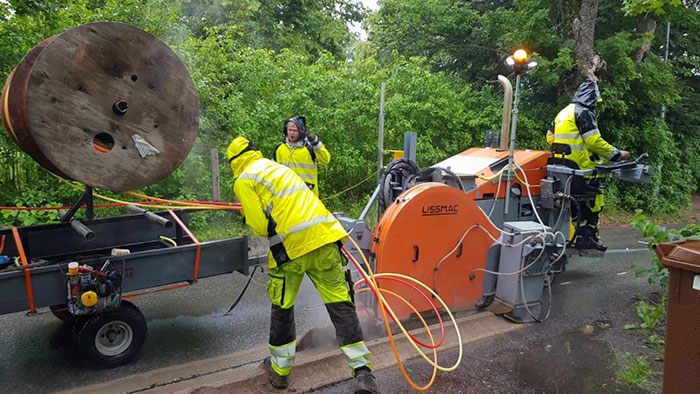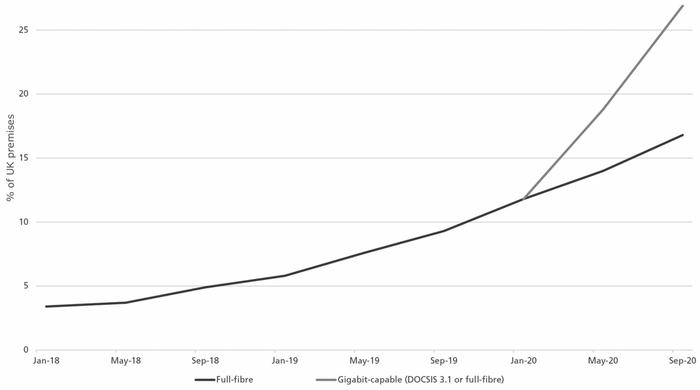HEXUS previously reported upon the government's manifesto pledge to have "gigabit broadband sprouting in every home" by the end of 2025. In July this had already been diluted to "go as far as we possibly can by 2025," but by September industry leaders warned that the manifesto pledge was far too ambitious to be realistic. Then, in late November, the government watered down its broadband plans even further in the chancellor's spending review. More specifically, it appeared to cut the funds allocated to helping realise the planned gigabit rollout from £5bn to £1.2bn.

Earlier this week a cross party select committee of MPs published a report on the topic of the government's targets and funding for digital connectivity and it is rather scathing in its findings. You can read the full and lengthy report here, and if you do visit the link you will find the key points have been helpfully bolded.
In summary, the report starts by saying that it is understandable that the original manifesto pledge has been fudged, as an unrealistic target can be counterproductive. It is welcomed that the government didn't take a very long time to listen to industry experts and concerns about the pledged gigabit rollout target. However, the shifting of the goalposts spoiled groundwork such as plans to build a robust investment case, and so on.
The government's newest plans come under fire from a number of angles. While the newer technological agnostic approach is welcomed, it is warned that 5G isn't a silver bullet. The committee thinks that physical fibre cabling is still essential for the future. One further point is raised about what will happen to the £5bn investment, with only £1.2bn ring-fenced for now.
Bringing other gigabit-capable technologies into scope will help
Lunging from one unrealistic target to another
Last but not least the cross party MPs assert that "it would not be acceptable having abandoned one unrealistic target, for the Government to fail to meet a second, less ambitious, target through lack of effective planning or inadequate investment." The MPs ask for a full considered government response to their findings with clearer detail on how it expects to achieve its goals, with a timetable that includes those outside the core 85 per cent who reside in easier to connect areas.
If digital Britain is really so important to the new economy then the plans need to be better sketched out for industry partners, stakeholders, businesses, and users - with realistic goals on a realistic timetable.
HEXUS received an email from Dan Howdle, consumer telecoms analyst at UK broadband and mobile comparison site Cable.co.uk, who generally echoed the committee's complaints but included an interesting nugget of information from ground-zero. Howdle wrote that Openreach's target of adding 20 million full fibre connected homes by mid 2020s will likely slip to the end of the decade without further resource commitments coming forward. He added that while gigabit might seem like a luxury right now, it will be vital to our lives and economy by the end of the decade.







